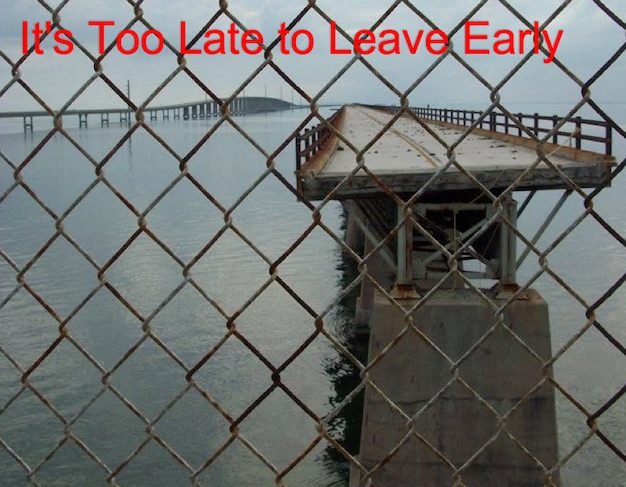When shopping for homes we favored those with extreme curb
appeal, and that was our first mistake. We fell in love with a house. In
addition to putting us at a competitive disadvantage in the negotiating
process, we couldn’t afford the place, but we were buying in the years leading
up to the housing bubble and it was just money, so what the heck.
And then there was the matter of our unsold property. The
one we were trying to leave behind. The one with the in-ground swimming pool.
In November. A contingency? No, we’ll just go ahead with the purchase because
the seller accepted a ridiculous lowball first offer. We could theoretically
double up on mortgages for a couple of months.
How were we to know that the seller was wealthy, a cunning
business person, who was also willing to write us a check, bridging us a loan
to get his house sold? All at the paltry interest rate of nine percent.
I drove to the seller’s new house to pick up a personal
check for $60,000. The drive to Lake Forest was short and scenic. I didn’t
realize at first that the street I navigated was a driveway. The doors to the
massive home reminded me of the huge entryway that frequently served as a
backdrop for Jed Clampett and Granny. But that was a painful association,
reminding me of our own home with the “see-ment pond” sitting unsold as our
closing date approached.
I produced a thundering metallic knock on the portal, fully
expecting a green-clad sentry to deny me entry to see the Wizard. When the door
swung open, our seller appeared in a foyer framed by two arching staircases
that culminated in a railed balcony overlooking a crystal chandelier below.
“It would be great for a wedding photo, don’t you think?”
commented seller.
Seller’s wife appeared. They were retired, living in 7,000
square feet of custom designed opulence. I had never before been in a house
with a five-car garage, a library, music room and an open hearth imported from
Europe. The money I had come to collect became a secondary issue. I was
mesmerized by the view ahead of me, far ahead of me, seemingly half a football
field ahead of me, of a fireplace that appeared large enough for several people
to stand inside. And the whole scene was vaguely familiar.
“It was modeled on the house you’re buying. Scaled…up” said
the seller. “Would you like a tour?”
I nodded, stunned into silence.
It was a mansion so large I would have gotten lost had I not
been accompanied. Many of the features were typical house stuff on a grand
scale. Quality throughout, and oversized beyond reason. Twelve foot ceilings?
Perhaps. But the kitchen! Most restaurants lack this splendor, losing in
elegance what they gain in stainless steel. The wall to my left was entirely
paneled in dark wood, floor to distant ceiling, curving almost out of sight
ahead and to the right. The subtle curvature of the space masked some of the
more utilitarian elements of the room. Appliances were built into seamless
cabinetry.
Stepping over to one such highlight, Mrs. Seller smiled and
proudly demonstrated a particular favorite. Opening what could only be called
an oven door at shoulder height, see proudly commented, “This can bake forty
potatoes.”
I spoke before thinking. The notion of baking forty potatoes
was funny to me, and I chuckled mildly to this retired couple and responded,
“Can it bake two potatoes?”
“Well, you have to keep the next owner in mind. Many like to
entertain in this area.”
That ended my tour. Check in hand, I was shown the door, the
portcullis, escorted over the moat and drawbridge and sent on my way. I looked
behind me as the gate closed with a resounding thunk, imagining a windlass taking
up lengths of clanking chains, and a large wooden bolt swinging into place
across the span to secure the castle against battering rams and marauding hoards.
Stupid savages. Curb appeal does that to people.










